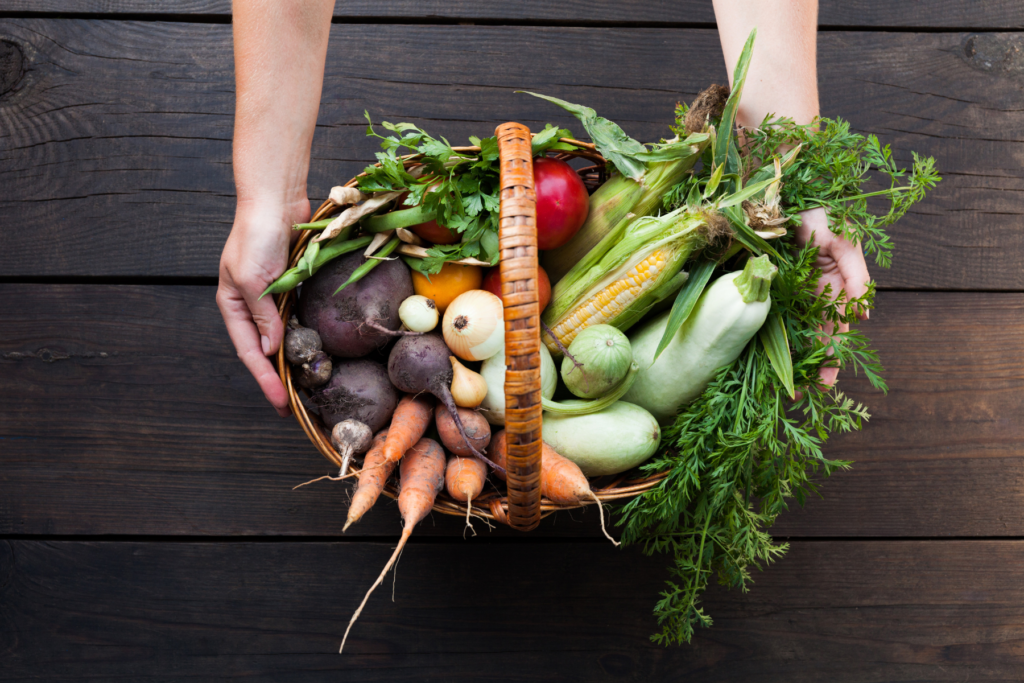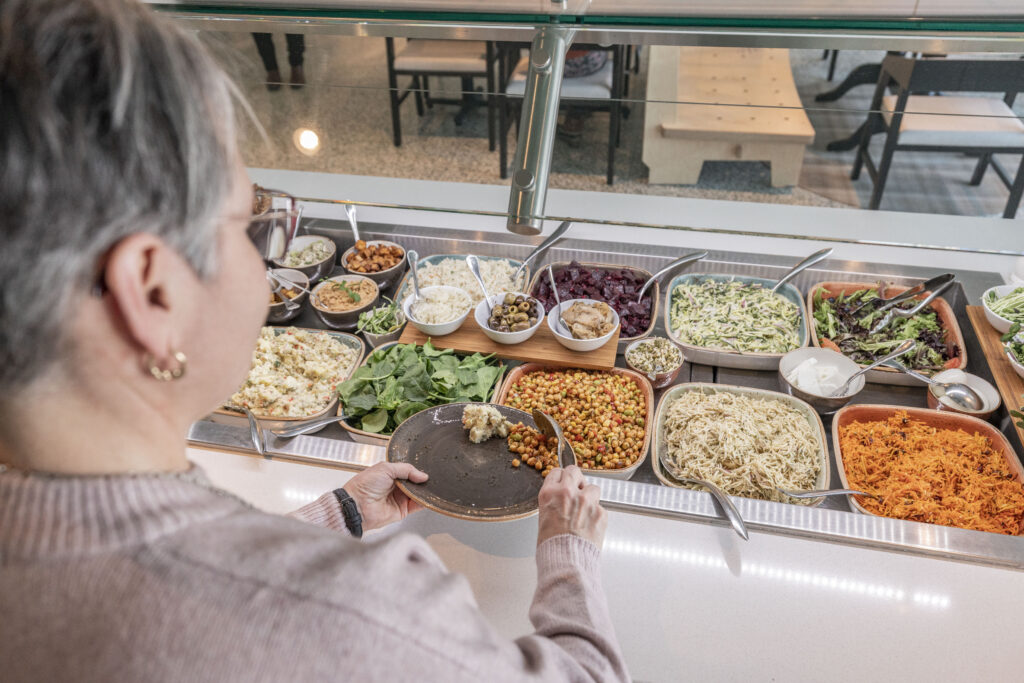Eating local
The Augustinian Sisters were eating local long before it became a movement. They always relied on high-quality food to help their patients heal and fully recover. To do this, they grew their own fruits and vegetables, owned farms to raise animals for meat and kept beehives for honey. What does it mean to eat local today?

As owners of Île-aux-Oies for 150 years, the ever-resourceful Augustinian Sisters transformed the tidal flats and fed the animals to produce milk, wool and meat. In the late 19th century, they invested in a dairy started by island residents, and the profits were reinvested in the Hôtel-Dieu de Québec.
What does eating local mean?
It means eating products that are grown locally, either in Québec or, on a larger scale, in Canada. It also means avoiding imported products, which have travelled hundreds, if not thousands, of kilometres to get to your plate.

Why eat local?
There are many benefits to eating local. Firstly, buying products directly from local producers helps support the local economy, reduces transportation and warehousing costs and helps keep profits in the region.
Secondly, eating local also helps reduce the environmental impact of your consumption. Importing food by plane or boat has major repercussions on entire ecosystems in terms of energy consumption and greenhouse gas emissions. By opting to buy local products, you can considerably reduce your carbon footprint.
In addition, eating local gives you the opportunity to learn more about the food you eat. By meeting local producers, visiting farms and participating in local events, you can gain a better understanding of where your food comes from, how it’s produced and what ingredients it contains.
Seasonal eating
Seasonal eating means eating fruits and vegetables that were grown near you and sold during the region’s harvesting period.
This type of produce is more flavourful and nutritious than out-of-season produce as it’s picked at the right time and at the ideal stage of ripeness. By adopting this habit, your food will also retain more nutritional value.

For example, you’ll want to eat root vegetables in the fall and other fruits and vegetables in the summer. Be sure to check where your food comes from when you buy it at the grocery store.
Le PRÉ cooperative
Most products used at Le Monastère des Augustines come from the Le PRÉ coop. This cooperative is made up of producers and restaurant operators who share the same values of highlighting local products via short supply chains in order to provide exceptional, eco-responsible products. We’re proud to say that this cooperative was founded in 2017 by our Executive Chef, Christophe Perny, and our partner, Cavila Dubé, founder and owner of Jardin des Arômes in Chaudière-Appalaches.
Le PRÉ allows producers to focus more on their harvests and production, restaurateurs to meet their needs for quality local produce, and consumers to enjoy fresh produce all year long.
It’s truly a win-win situation. Indeed, the way the cooperative works allows producers to know what and how much to grow. Restaurateurs have access to fresh produce with no intermediary, so they pay less and can then sell their products to clients at a reasonable price.

Eating local is good for your health and for the planet. Ultimately, it’s an act of kindness toward yourself, others and the earth, which is a philosophy the Augustinian Sisters would advocate.
Lastly, in keeping with the Augustinian Sisters’ values, Le Monastère’s restaurant team gives free workshops for guests, museum-goers and visitors. The workshops take place at Le Vivoir and touch on a range of topics, such as seasonal vegetables and their benefits, green juices and organic food. You won’t want to miss them!
For more information about workshops at Le Vivoir, please call Le Monastère des Augustines at 418-694-1639.

